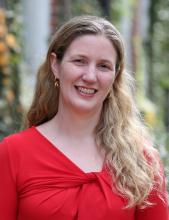The activity was an intercultural activity created by Mittelmeier et al ( 2018). In this activity students use data from the world bank to determine what country should receive extra funding in order to meet one of the world bank goals that each student should attend a university.
Mittelmeier, J., Rienties, B., Tempelaar, D., Hillaire, G., & Whitelock, D. (2018). The influence of internationalised versus local content on online intercultural collaboration in groups: A randomised control trial study in a statistics course. Computers & Education, 118, 82-95
- Communication and interaction of students from two data centered courses that focus on statistical methods of analyzing data while having different approaches and using different programming languages.
- Collaboration of students from two different courses in analyzing, understanding and solving a data-related task.
- Intercultural interaction with students studying at another country.
World Bank Website
R programming language in Posit
The activity was an intercultural activity created by Mittelmeier et al ( 2018). In this activity students use data from the world bank to determine what country should receive extra funding in order to meet one of the world bank goals that each student should attend a university. The students examined data from all of the home countries of the participants. They then had to provide statistical arguments for why a country should receive the funding.
The students were randomly distributed into one of three breakout rooms to work on the activity.
As a reflection, the students had to rank several characteristics of the exchange and answer a few long questions:
1.On a scale of 1 to 5, how would you rank this activity: * In terms of learning something new or practicing your statistics/data science knowledge * In terms of practicing communicating your statistics/data science knowledge with other students * In terms of intercultural interaction with students from different countries in a statistics/data science-focused activity
2. Did the “virtual exchange” format of the activity enhance the experience of this teamwork? If yes, how?
3. What did you learn during this activity that you didn’t know before, or what did you notice that you had not noticed before (in terms of technical, data science, statistics, programming concepts or ideas or knowledge)?
4. What did you learn about another country that you didn’t know before?
5. What would you keep, change, or add about this activity to make it a more helpful experience for students in statistics/data science?
Mittelmeier, J., Rienties, B., Tempelaar, D., Hillaire, G., & Whitelock, D. (2018). The influence of internationalised versus local content on online intercultural collaboration in groups: A randomised control trial study in a statistics course. Computers & Education, 118, 82-95.

